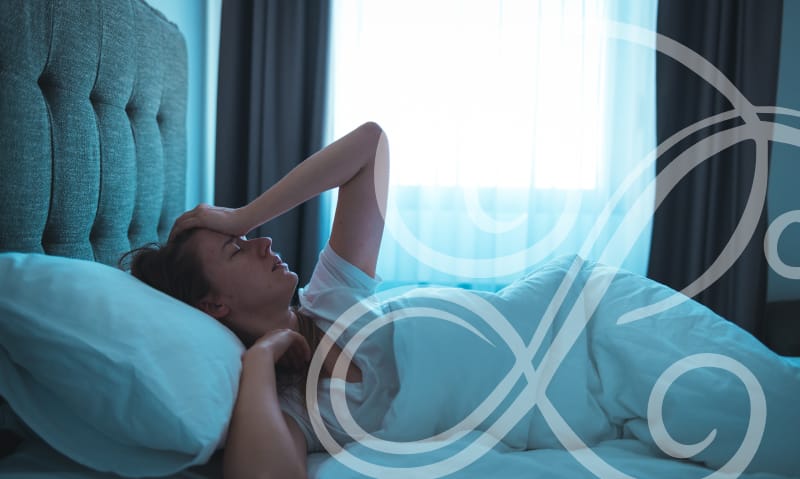Signs, Symptoms, and Treatments: Get the Facts About Sleep Apnea

Common Symptoms of Sleep Apnea
Are you feeling tired throughout the day or experiencing seemingly random jolts awake at night? The cause behind these issues could be sleep apnea. You can keep an eye out for these symptoms to know when it’s time to seek out sleep apnea treatment.
There are many symptoms of sleep apnea that you could find yourself dealing with. You might experience any combination of these symptoms depending on how severe your sleep apnea is.
One of the most common ways that people find out about sleep apnea is by trying to look up how to stop snoring. Snoring is one of the most widespread symptoms of even very mild sleep apnea. This motivates many people to seek out snoring remedies.
Sleep apnea can cause you to briefly stop breathing while asleep, which causes you to jolt awake suddenly. However, many individuals will go right back to sleep and not remember a thing. As such, a person’s partner usually notices this and other symptoms of sleep apnea first.
If you’re waking up throughout the night, you aren’t getting quality sleep. This can lead to feeling fatigued and agitated throughout the day. You could also find yourself with morning headaches.
Sleep apnea can also cause dry mouth, a condition in which the mouth doesn’t produce enough saliva. This can cause you to wake with an uncomfortably dry mouth, an unpleasant sensation that also reduces your mouth’s ability to manage bacteria.
What causes sleep apnea?
There are two types of sleep apnea: central and obstructive. Central sleep apnea occurs when the brain’s signals that control breathing are ineffective. Obstructive sleep apnea happens when the muscles in the back of your throat relax, which causes the airway to close.
Who is likely to develop sleep apnea?
Estimates of how many people suffer from sleep apnea vary widely due to many people not realizing they have it and remaining undiagnosed. Even a conservative estimate can be as high as 10% for adults, meaning 1 in 10 adults in the U.S. suffer from sleep apnea in some capacity.
Age is among the most important factors in your risk of developing sleep apnea. While the condition can affect individuals of any age, older adults have significantly higher rates of sleep apnea. Men are also more likely to develop sleep apnea than women.
Your lifestyle also has a major impact on your chances of developing sleep apnea. Smoking is a major contributor to sleep apnea risk, causing inflammation in the airway that makes it easier to obstruct. Fat deposits around the airway due to obesity also increase this risk.
What issues can sleep apnea cause?
Sleep apnea can lead to many complications that can impact your quality of life. Anyone trying to figure out how to stop snoring likely already understands the impact that it can have on their life as well as their partner’s.
Those suffering from sleep apnea can also suffer from a lack of sleep that affects their daily lives. Being tired and irritable at work and throughout the day can be a major issue common in many cases of sleep apnea.
A variety of serious health issues are also associated with sleep apnea. For example, it can raise blood pressure, causing chronic hypertension and increasing the risk of heart attack, stroke, and other cardiovascular diseases.
What can I do about sleep apnea?
The first thing to do if you’re suffering from the symptoms of sleep apnea is to get diagnosed. You can use an at-home test kit to investigate the issue yourself and then seek out a sleep physician for a proper diagnosis.
If you’re only dealing with mild sleep apnea, there are a variety of snoring remedies that can help reduce that. However, if you’re experiencing any other symptoms, then you will likely require further treatment.
For severe cases, one of the most common treatments is continuous positive airway pressure (CPAP), in which a machine generates positive air pressure and supplies it to your airway through a mask that you wear over your nose while you sleep. This keeps the airway open overnight.
Mild to moderate cases can often benefit from oral appliances. These are a type of nightguard that holds your jaw in a certain position where your throat muscles are less likely to relax and close the airway.
Concerned about sleep apnea?
If you’re concerned about sleep apnea, you can reach out to Parmer Lane Family Dentistry, a local dental office in Austin, Texas, for sleep test kits. If you are diagnosed with sleep apnea, we can create an oral appliance that may be an effective treatment option. You can contact us today to find out more about sleep apnea treatment.